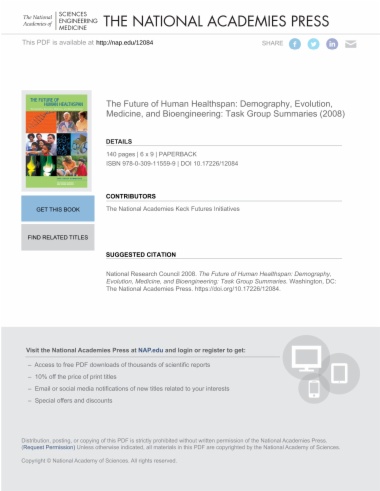

An individual's healthspan can be defined as the length of time an individual is able to maintain good health. In 2007, over one hundred experts and researchers from public and private institutions across the nation convened to find new ways of addressing the human healthspan and the elusive nature of aging. Experts in public health, bioengineering, neuroscience and gerontology discussed how stress and lifestyle influence the decline of health at older ages. Other discussions focused on the integration of technology in the quality of life, gerontology, regenerative medicine and life expectancy with regard to social and behavioral traits. Still, other groups explored topics such as the cellular and molecular mechanisms of biological aging, the effects of exercise on the human healthspan, and changes in social context to enhance functional status of the elderly. Most importantly, experts agreed that it was imperative to ensure that the elderly have access to medical services by establishing relationships with health care and insurance providers.